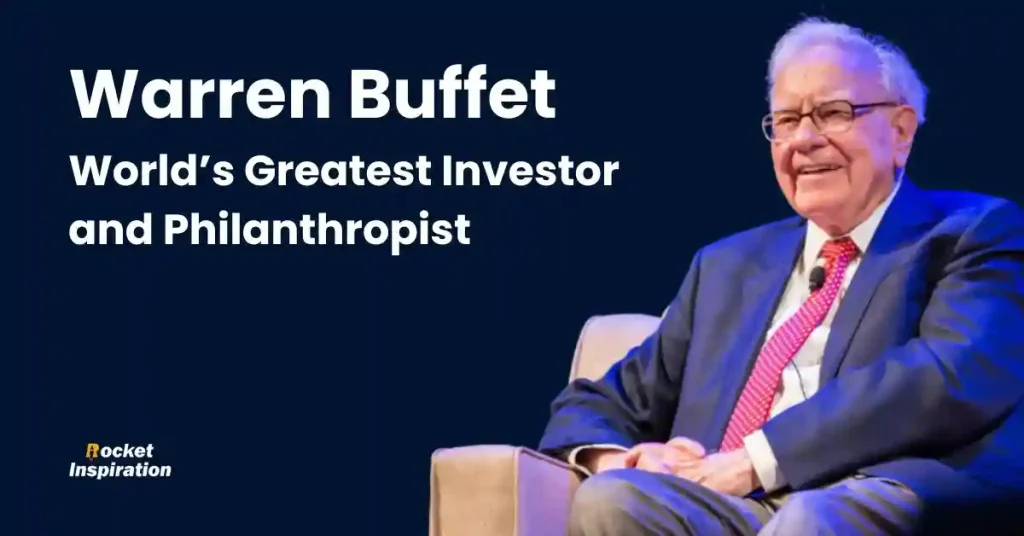Warren Buffett is a name known for success in investments. His life offers lessons for those seeking financial wisdom. He built wealth through discipline and patience. Buffett focused on undervalued businesses with long-term potential. He believed in research and steady decision-making.
Born in Omaha in 1930, his journey began with small ventures. Over time, he became a leader in global finance. Through Berkshire Hathaway, he reshaped how companies grow. Buffett’s strategies emphasize simplicity and long-term results. His philanthropy shows a commitment to giving back.
This article explores his life, achievements, and principles. Each section provides insight into his enduring legacy.

Early Life of Warren Buffett
Warren Edward Buffett was born on August 30, 1930, in Omaha, Nebraska. His father, Howard Buffett, was a stockbroker and a U.S. congressman. Warren showed interest in numbers and business at an early age. He sold chewing gum and Coca-Cola bottles for small profits. By the age of 11, he purchased his first shares of stock. These early ventures showed his drive for financial success.
Buffett often visited his father’s brokerage firm. He spent time studying stock price charts on a blackboard. These experiences shaped his curiosity about investments. At age 13, he started delivering newspapers. He saved much of the money he earned from these jobs.
Buffett’s Education
Buffett attended the University of Pennsylvania at age 16. He studied business but later transferred to the University of Nebraska. He graduated with a degree in business administration. He displayed a strong aptitude for mathematics during his studies.
After college, he applied to Harvard Business School. His application was rejected, which shifted his plans. He then enrolled at Columbia Business School. There, he studied under Benjamin Graham, a pioneer of value investing. Graham’s teachings shaped Buffett’s investment philosophy. He learned to look for undervalued companies with strong potential.
The Start of Buffett’s Career
After earning his master’s degree, Buffett returned to Omaha. He worked at his father’s brokerage firm. Later, he joined Graham-Newman Corp. in New York. This role allowed him to apply value investing principles. Buffett gained practical experience during his time with Graham.
In 1956, Graham retired, and Buffett returned to Omaha. He started his own investment partnerships. Buffett pooled funds from family and friends to manage investments. These partnerships achieved high returns, making Buffett a millionaire by 1962.
Buying Berkshire Hathaway
In the early 1960s, Buffett started purchasing shares of Berkshire Hathaway. It was a struggling textile company at the time. Buffett identified its undervalued assets and saw an opportunity. By 1965, he gained control of the company.
Buffett initially focused on improving the textile business. However, he later shifted its focus to investments and insurance. This decision marked the transformation of Berkshire Hathaway. It became a holding company for various businesses.
Investment Strategy
Buffett follows a long-term investment approach. He looks for companies with durable competitive advantages. He values firms with strong management and predictable earnings. Buffett avoids speculative ventures and prefers businesses with stability.
He has made notable investments in Coca-Cola, Apple, and American Express. His philosophy emphasizes buying and holding assets for decades. This strategy allows investments to grow over time. Buffett’s approach requires patience and careful research.
Building the Berkshire Empire
Buffett expanded Berkshire Hathaway into a global conglomerate. He used insurance premiums as a source of capital for investments. He acquired companies in diverse industries, including energy, retail, and manufacturing.
Berkshire Hathaway also became a major player in the stock market. Buffett’s investments focused on companies with strong fundamentals. His choices reflected confidence in long-term growth. Today, Berkshire Hathaway owns more than 65 companies outright.
The Oracle of Omaha
Buffett’s success earned him the nickname “Oracle of Omaha.” Investors and business leaders respect his insights. His annual letters to shareholders are widely read. Buffett’s straightforward advice resonates with people worldwide.
He continues to lead Berkshire Hathaway as chairman and CEO. Despite his wealth, he maintains a modest lifestyle. He still resides in the Omaha home he purchased in 1958.
Philanthropy and Giving Back
In 2006, Buffett pledged to donate most of his fortune to charity. The Bill & Melinda Gates Foundation is the primary recipient. Buffett’s donations exceed $36 billion to date. His philanthropic efforts focus on education, healthcare, and poverty alleviation.
Buffett believes in using wealth to improve society. His commitment to giving back reflects his values. He encourages other billionaires to join him in philanthropy.
A Life of Lessons
Warren Buffett’s life teaches discipline and focus. His success stems from clear principles and long-term thinking. From humble beginnings, he built an empire through patience and skill.
Buffett remains a role model for investors worldwide. His actions emphasize the importance of ethics and generosity. Few individuals have influenced the financial world as profoundly as he has.
This remarkable journey shows what vision and determination can achieve. Warren Buffett’s story continues to inspire new generations of leaders.
